Ahead of the 2027 General Elections, various stakeholders, including opposition parties, civil society organisations (CSOs), security agencies, and media, have been urged to strengthen their roles to ensure Nigeria’s democracy thrives.
This call was made at the National Conference on Strengthening Democracy in Nigeria, which held in Abuja on Monday and Tuesday.
The conference, themed “Strengthening Nigeria’s Democracy: Pathways to Good Governance and Political Integrity,” featured Mr. Mahamudu Bawumia, the immediate past Vice President of Ghana, as the keynote speaker. It was organised by the African Centre for Leadership, Strategy, and Development (Centre LSD), Centre for Democracy and Development (CDD), Westminster for Democracy (WfD), Peering Advocacy and Advancement Centre in Africa (PAACA), and the National Peace Committee (NPC).
The communiqué presented by Dr. Otive Igbuzor, Mrs. Abiola Akiyode-Afolabi, and Ezenwa Nwagwu stressed the need for strengthening Nigeria’s democratic foundations.
“While Nigeria has maintained uninterrupted democratic governance for over 25 years, it faces an unprecedented crisis that threatens its survival,” the communiqué noted.
It said that despite holding seven general elections since return to democracy in 1999, systemic issues like electoral malpractice, political party inefficiency, weak governance, and corruption have eroded public trust.
Key issues raised during the conference included the increasing threats to democracy in Africa, exemplified by eight coups between 2020 and 2023, and the attempts of certain leaders to alter constitutions to extend their tenure.
The communiqué also highlighted alarming findings from the 2023 Open Society Barometer, which revealed that 30% of Nigerian youth believe military rule could be better for citizens.
Participants noted the weakening of state institutions by overbearing executive leaders and the rise of state and elite capture, which threatens the pluralistic nature of Nigeria’s democracy. “There is a growing tendency for electoral outcomes to be decided by the judiciary rather than through the ballot,” the communiqué warned.
Further concerns were raised about the rise in vote-buying, despite ongoing reforms meant to sanitise the electoral system. The erosion of political parties’ roles due to their capture by “barons and warlords”, resulting in a lack of internal democracy, was also discussed. Additionally, the centralisation of the electoral management system and the absence of opposition voices and civic space were identified as significant issues.
To address these challenges, the conference emphasised the need for the executive to focus on reducing social inequalities and tackling poverty, which often leads to the “meal over vote” phenomenon.
Participants also urged a revisit of the Uwais Report, which outlines long-term electoral reforms. Additionally, they called for the entrenchment of local government democratic autonomy, police reforms, and the de-centralisation of election management to increase the efficiency and inclusiveness of the process.
What the judiciary must do
On the judiciary, the communiqué emphasised the need for reforms aimed at attaining greater autonomy, improving judges’ welfare, and enhancing the conditions of service for legal officers. The importance of re-orienting legal officers to prioritise public interest over commercial interests was also discussed.
The legislature’s role in electoral reform was also highlighted. The communiqué urged the 10th Assembly to prioritise the reform proposals currently before the National Assembly. This includes reviewing the Electoral Act to eliminate the “winner-takes-all” system and ensuring that persons appointed to sensitive positions in the Independent National Electoral Commission (INEC) are thoroughly scrutinised.
Inclusivity in the electoral process was another major theme. The conference called for the inclusion of diaspora voting, allowing Nigerians living abroad to participate in national elections.
The conference also emphasised the role of CSOs and the media in engaging citizens. They were urged to educate the public on their rights and responsibilities, hold duty-bearers accountable, and advocate for reducing the incumbent’s power to appoint individuals into sensitive positions.
Regarding INEC, the communiqué urged the electoral body to decentralise election management, enhance transparency through technology, and strengthen political parties by regulating internal democracy. The creation of new departments within INEC to better monitor political parties was also proposed.
Participants also urged security agencies to uphold the law by prosecuting electoral offenders and maintaining neutrality in electoral matters. A professional security force, independent of political interference, was deemed vital for ensuring free, fair, and credible elections.
On political parties, the conference called on them to unite and form a strong coalition to provide effective checks and balances. It noted that political parties should not merely serve as election vehicles but remain active and engaged in political, social, and economic issues. The communiqué further called for political parties to embrace competitive primaries, ensuring the selection of capable and competent candidates.
The communiqué concluded with a call for political parties to adopt innovative fundraising strategies to ensure financial independence and avoid state capture. Intra-party democracy and competitive primaries were deemed essential for ensuring that Nigeria’s democracy flourishes.
Plan to rig 2027 election already unfolding – Tambuwal
On his part, former governor of Sokoto State and current senator for Sokoto South, Aminu Waziri Tambuwal, charged civil society organisations (CSOs) and the media to rise to the challenge of strengthening Nigeria’s democracy.
Tambuwal alleged that plans to rig the 2027 elections were already in motion and warned that unless there is a coalition like the one formed in 2015, stopping the plot may be impossible.
Speaking as a panellist during a session on “Rebuilding Confidence in Presidential System of Government,” Tambuwal lamented the civil society’s apparent passivity in holding the government accountable.
“In the past, many of us here, including our boss, former Vice President Atiku Abubakar, were part of the coordination that helped improve and sustain democracy in Nigeria. But now, it seems that some of the same people involved in civil society efforts are now in charge. I don’t know whether it’s because of some kind of understanding between civil society and the current government, but the silence today is worrying,” he said.
Tambuwal called on civil society to replicate the role it played in 2013-2014, helping to fortify Nigeria’s democracy. He warned that unless this action is taken, the country’s democratic system was in peril.
He added that the foundation for sustaining democracy lies in the electoral processes and outcomes. Tambuwal criticised the current leadership of the Independent National Electoral Commission (INEC) under Professor Mahmood Yakubu, stating that the progress made under Professor Attahiru Jega’s tenure had been reversed.
“It is about the character of those leading these agencies. We must ensure the right people are in these positions, especially with 2027 approaching,” he said.
The former Speaker of the House of Representatives also stressed the importance of electing individuals with the character and capacity to govern. He noted that a leader lacking these qualities would likely surround themselves with cronies, undermining the governance system.
“Are we just going to sit back and allow this to happen? Or will we rise up and protect our democracy?” Tambuwal asked. He called for a return to the principles of a fair electoral process, insisting that only those with integrity and competence should be entrusted with leadership roles.
Tambuwal also urged members of the ruling All Progressives Congress (APC) to join forces with opposition parties and civil society groups in challenging the current government’s practices.
“You can be part of the governing party, but when the government is doing wrong, you must speak out. This is the time for all of us, inside and outside the government, to unite and save our democracy,” he said.
CSOs must not be incited for power grabbing – Waziri Adio
Also speaking at the event, Mr. Waziri Adio, founder of Agora Policy, cautioned that civil society organisations and the masses must not be manipulated for the sake of power-grabbing.
He pointed to the vast resources expended in Nigeria over the past 25 years, questioning why the country’s key indicators for development had not improved. “Why has the conversation been framed as though Nigeria started its decline in 2015 or 2023?” Adio queried.
“If we want to move forward, we also need to talk to ourselves. What are we offering that’s different? Or is it just about, okay, we’re out now, and we need to get these people out, and we’re trying to incite civil society to do this?”
He urged those involved in governance and the civil society to examine what they could offer differently to ensure true progress for the country. Adio emphasised the need for governance to go beyond elections, advocating for a truly representative and participatory system that prioritises the people’s interests.
“We need to ensure that governance isn’t just about elections, but about engaging people at all levels, starting from local governance,” Adio stressed. He noted that if local governments worked effectively, it could lead to significant improvements across the country.
PDP conducted worst elections, APC replies Atiku, El-Rufai
Meanwhile, the ruling APC has dismissed allegations by former Vice President and the PDP presidential candidate in the last election, Atiku Abubakar, that Nigeria’s democracy is under threat.
Atiku, speaking at a democracy conference in Abuja on Monday, had warned that the nation’s democratic system was in peril due to what he called increasing judicial involvement in electoral matters. He also accused President Bola Ahmed Tinubu of disbursing N50 million to some opposition leaders to weaken their parties.
In a statement issued on Tuesday by its National Publicity Secretary, Felix Morka, the APC described Atiku’s claims as “laughable” and questioned his credibility in making such assertions.
The APC stated: “It was in the Atiku era as Vice President, particularly in 2003 and 2007, that the PDP conducted the worst elections in our political history. We cannot forget how Atiku’s PDP used heavy-handed tactics to capture most South-West states and even vowed to remain in power for 60 years.
“It was during those years that Atiku’s then-boss, President Olusegun Obasanjo, famously described elections as a ‘do or die affair’ in a desperate bid to annex Lagos State.”
The APC questioned Atiku’s assertion that democracy is now at risk, arguing that recent elections have been “by far freer, fairer, and more credible” than those held during the PDP era.
“If democracy was neither derailed nor endangered in those perilous days, how can it now be at risk when the electoral process has significantly improved?” the APC queried.
Addressing the claim that President Tinubu paid N50 million to opposition leaders to stifle dissent, the APC dismissed it as baseless.
“Atiku knows his political desperation has contributed to the catastrophic disintegration of the PDP,” the statement said. “Peddling unsubstantiated rumours should be beneath someone of Atiku’s standing as a former Vice President and a serial contestant for the presidency.”
The APC also criticised Atiku and other opposition figures, including Peter Obi and former Kaduna State governor, Nasir El-Rufai, for insinuating that the ruling party had a role in the internal challenges facing opposition parties.
[DailyTrust]
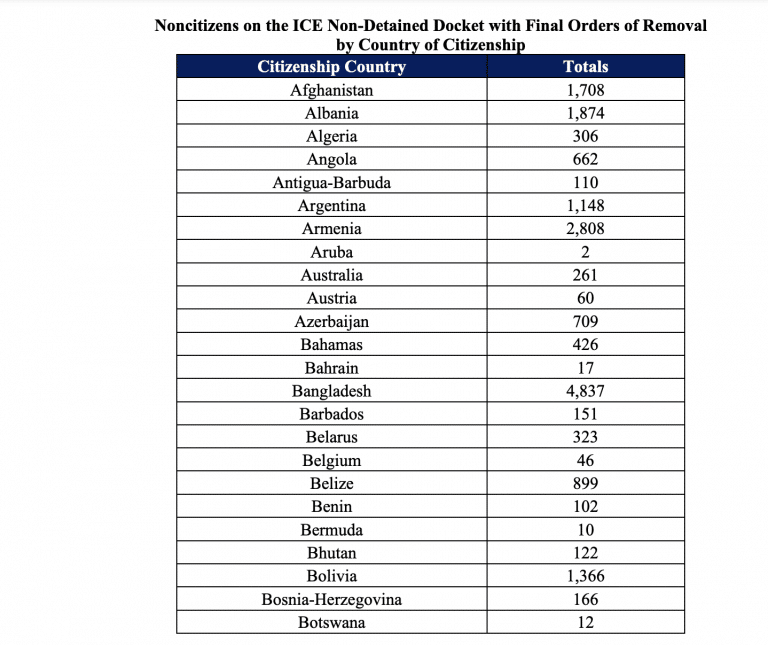
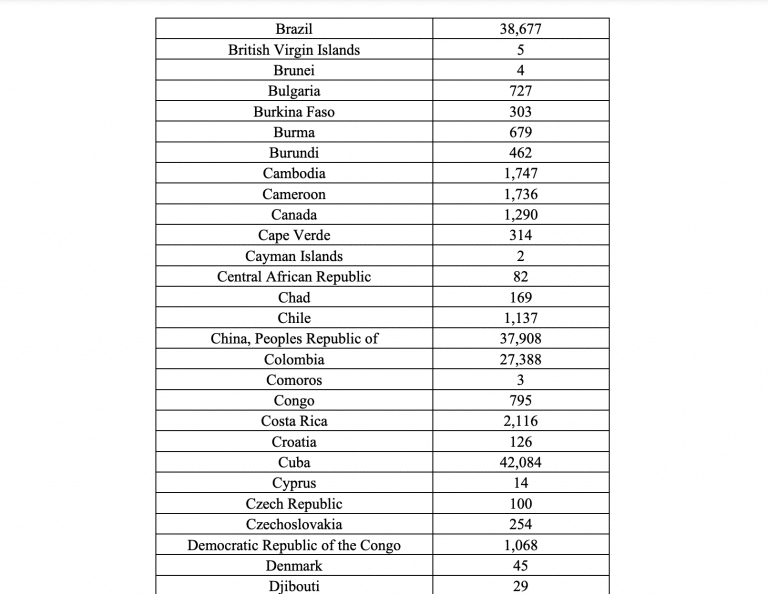
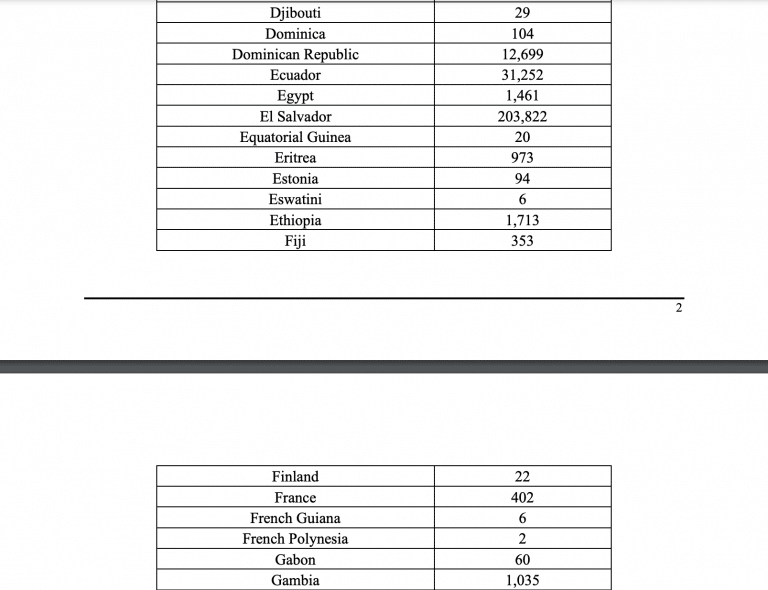
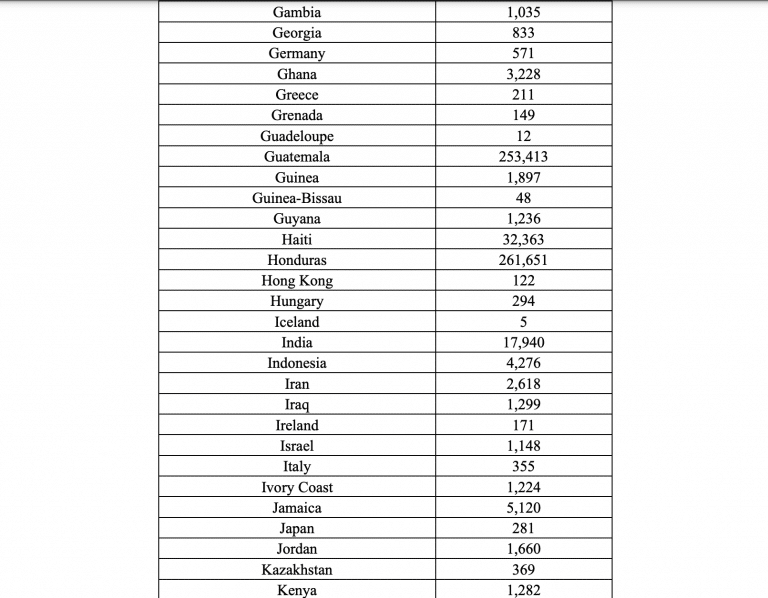
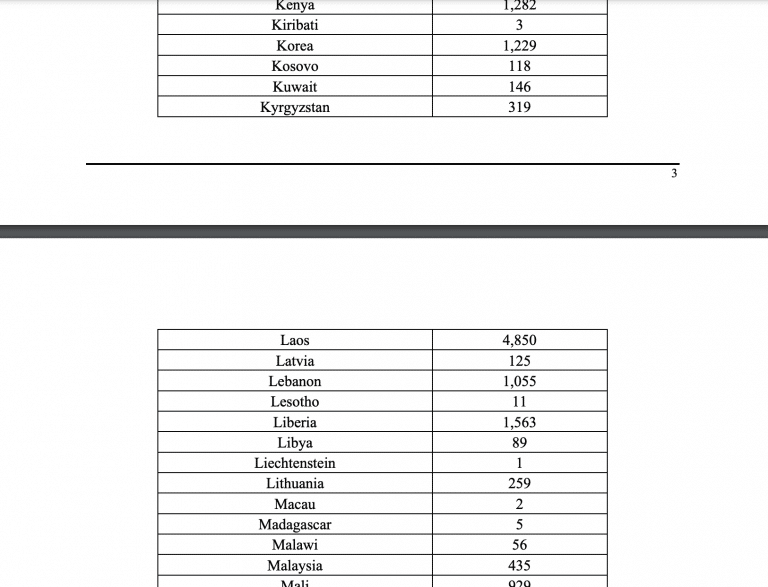
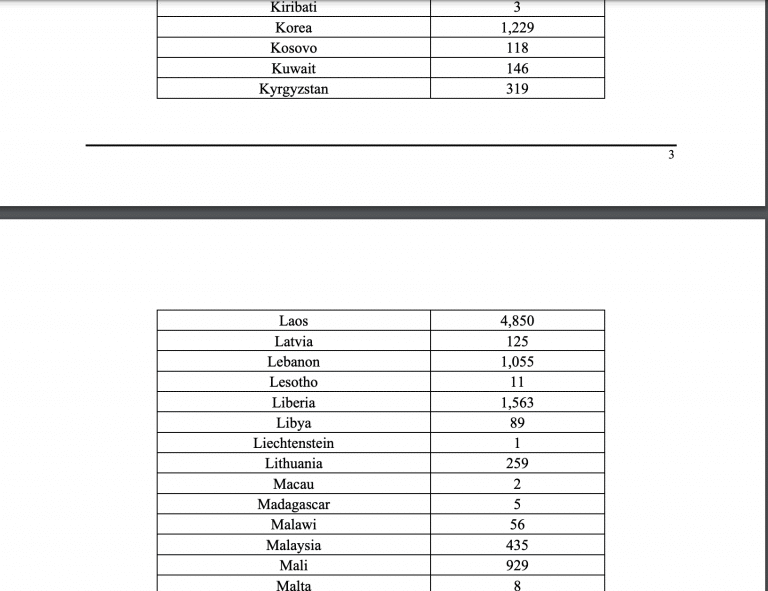
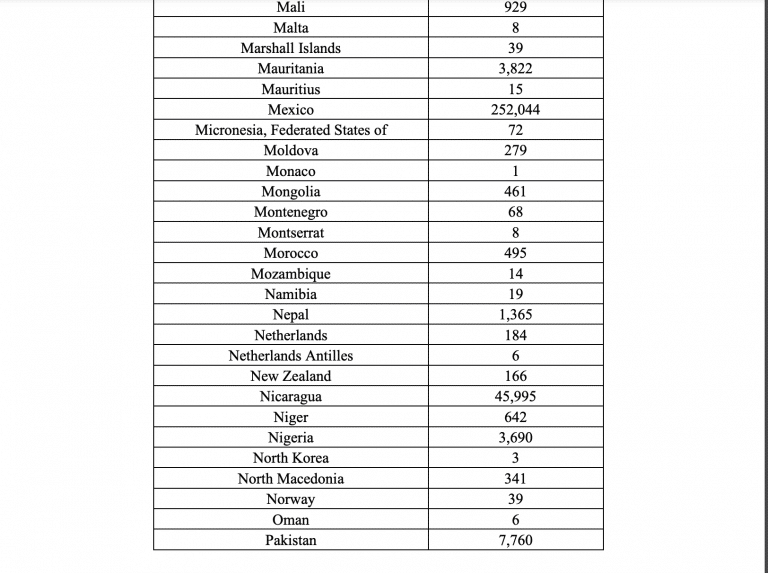
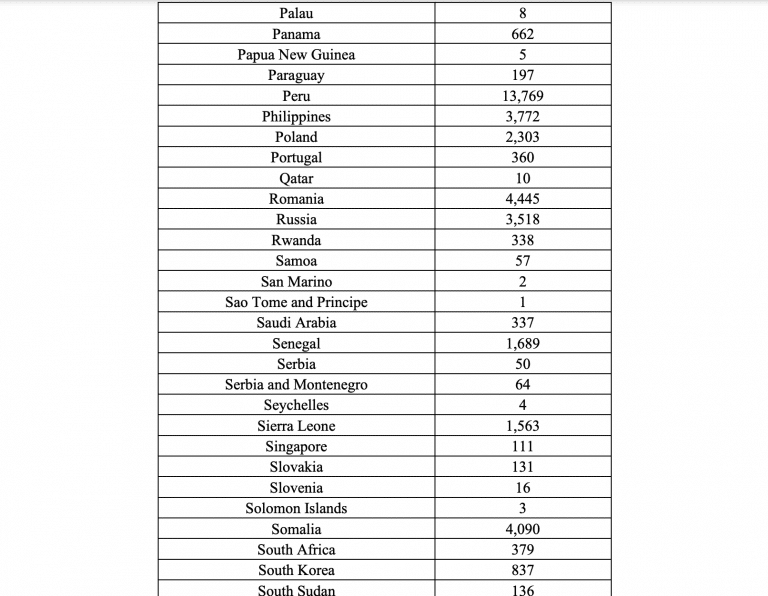
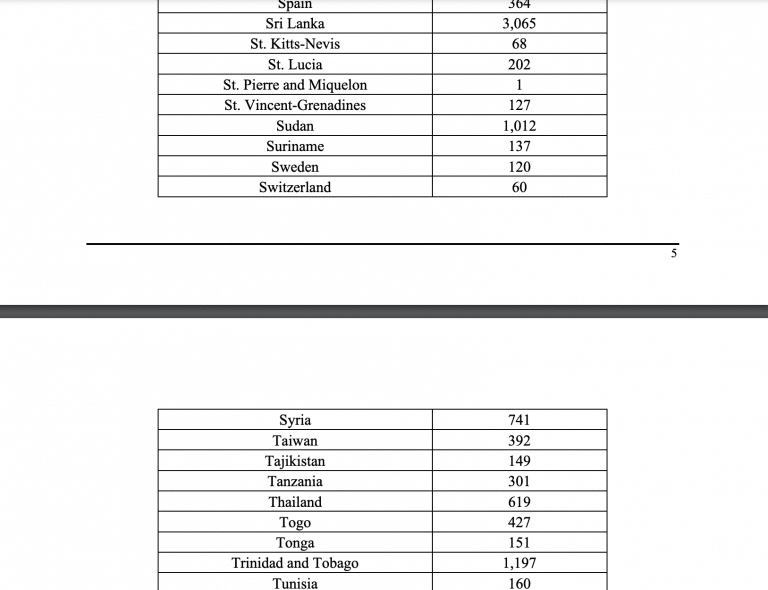
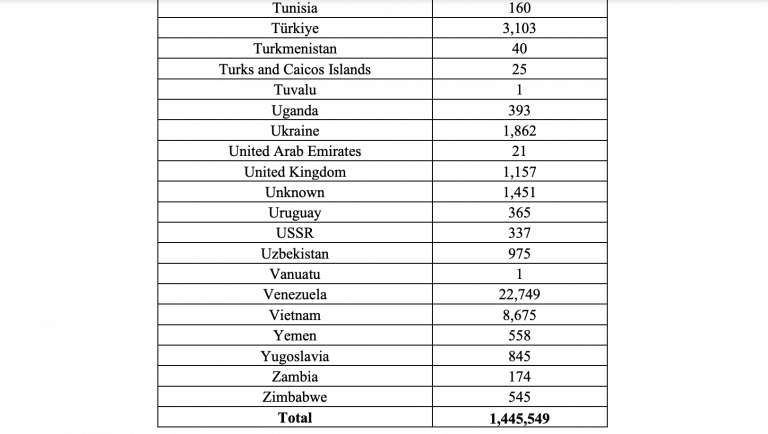

![[OPINION] When ignorance is bliss… - Bola Bolawole](/media/k2/items/cache/dd70af6ca2dd5f299f37afbe68ef2ba0_Generic.jpg)
![[PRESS STATEMENT] Regional Rift: Burkina Faso, Mali, and Niger Withdraw from ECOWAS Effective January 29, 2025](/media/k2/items/cache/2c7f639c641cd9d46459b123b0fdd09b_Generic.jpg)






![[OPINION] Ceaseless strikes in Nigeria’s health sector - Jide Ojo](/media/k2/items/cache/1e2a052386949d4397e42600d4ee4ac4_Generic.jpg)
![[OPINION] What to do after tariff hikes - Lekan Sote](/media/k2/items/cache/7dedb6533b630d4eb74543ef59041a5e_Generic.jpg)
